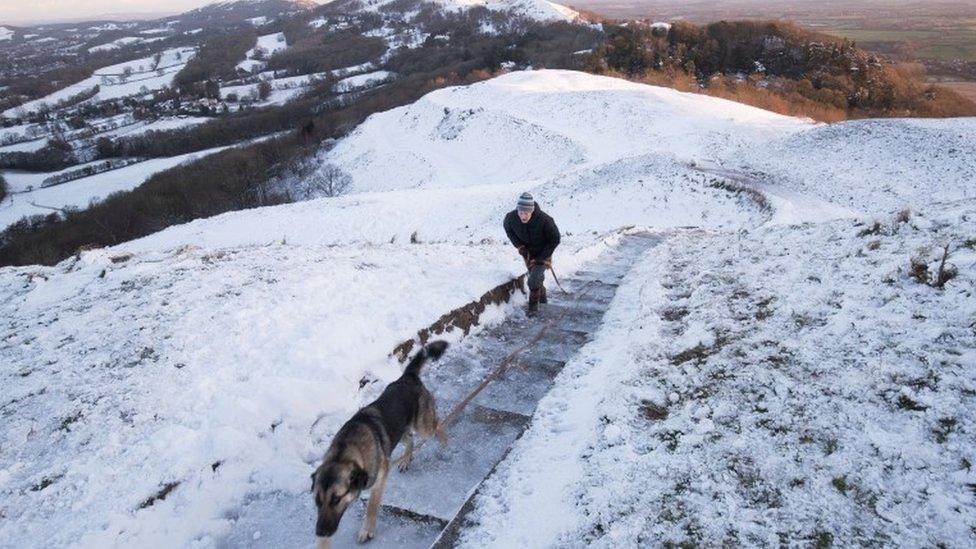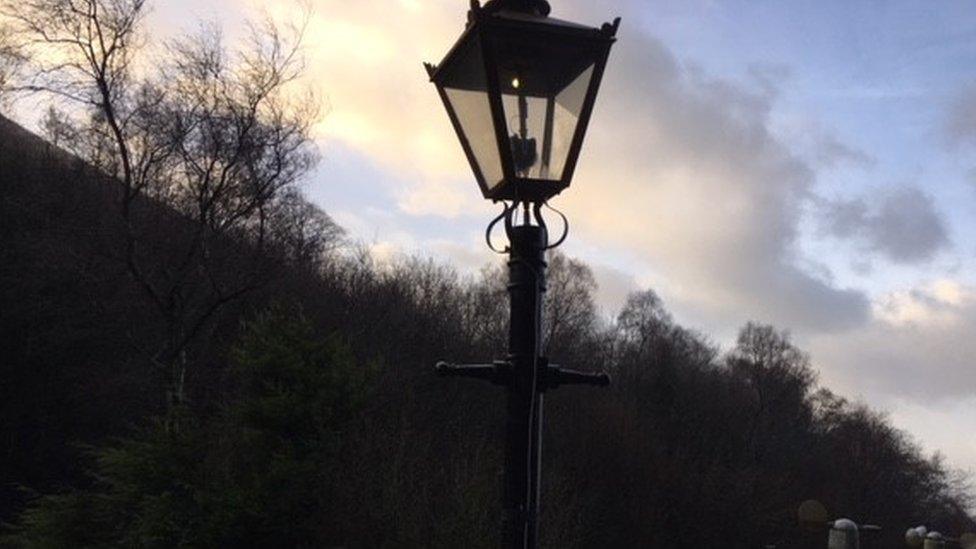Dog poo powers Malvern Hills street lamp
- Published
The sweet smell of success
A street lamp powered by dog poo has started lighting up a famous beauty spot.
Dog walkers on the Malvern Hills are being encouraged to drop the waste into an anaerobic digester which converts it into methane to fuel the lamp.
Ten bags are sufficient to provide two hours of light.
Creator Brian Harper said he wanted to find a use for it after seeing poo-filled bags being left at the area of outstanding natural beauty.

The beauty spot was designated an area of outstanding natural beauty in 1959
The lamp stands outside Mr Harper's home, on a main access route to the Malvern Hills.
He said he first saw the idea in an art installation in the US city of Boston about five years ago and is also a member of a group that has helped save more than 100 listed gas lamps in and around Malvern.
After seeing a "great deal of dog traffic" go past his home and the plastic bags strewn about, he wanted to find a solution.
"I looked and I thought this is a crazy way. There must be a way of trying to give dog poo a value so people would do something sensible with it," he said.

How it works:
Dog walkers must collect free paper "poop scoop" bags to collect the waste which they deposit in the device
They rotate a handle five times which moves the bag and the poo into the bio-digester where it gets broken down by microbes
Over a period of days it produces bio-gas - 60% methane and 40% carbon dioxide - which is stored in a small gasometer
When the lamp senses it is dusk, it turns on its own gas supply, ignites a gas mantle and uses the bio-gas to light up


Ten bags can supply power for two hours, Mr Harper said
The lamp was first trialled in November after more than two years of tests and Mr Harper said he wanted to install similar devices in other areas.
He has received some funding from Malvern Hills Area of Outstanding Natural Beauty to work on the project.
The 66-year-old said he has since seen a reduction in dog waste.
"The public have a very sensible place to put it," they said.
"They aren't carrying it away... they can see dog poo is very useful and the light helps them if they're coming down of the hill later in the evening."